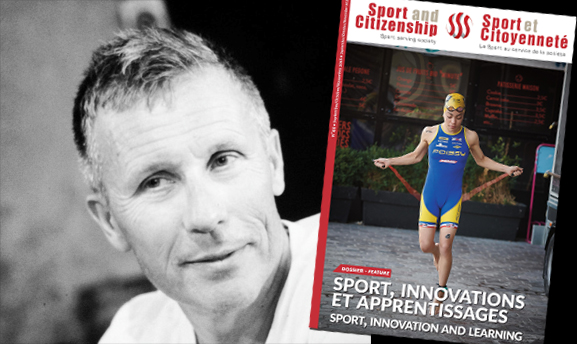Can emotion be digitalized?

Thierry Seray, founder of the Codezero agency
How to situate the emotion that can be felt by practicing a sport activity in an increasingly connected environment?
In 2006, Nike put sensors in runners’ shoes and connected them to an iPod. Sport was digitalized. Today, however fast we run, technology always catches up with us. The future of sport is digital. With your smart phone, all kinds of sensors can already help you to get data about your environment. In the future, everyone will be able to quantify effort, intensity, stress, fatigue, dehydration and, soon, levels of metabolites, electrolytes and many other things. After all, we’ve moved from cotton to Goretex, from wood to carbon, from leather to urethane, from the compass to GPS, and we all seem to be all right. But smart sport is also measured sport, with norms, figures, comparison and performance in one form or another. Sensors and a smart phone will always bring us back to the “world”. Yet we often do sport, particularly outdoor sport, in order to get away from the world.
During the summer of 2015, Jean-Marc Barr played Jack Kerouac. The “Beat” generation, he said, lived for about 20 or 30 years just after the war and did not want to follow the quiet path of home and family suggested by Eisenhower at the time…. They were into intellectual exploration. They were seeking spiritual fortune and individual liberty. During the 70s, social changes were echoed in sport. Skiing and outdoor sports offered an alternative to traditional sports. People wanted to experience sport differently, not just through competitive sport. They wanted to exist and feel, instead of winning. Pioneers marked the way for what was to become a new sporting culture. It was all about “searching” for an experience, not just “doing” sport. Nature replaced stadiums, and the desire to be at one with the world and its rhythms replaced the stopwatch. What we all seek on rock faces, on glaciers, along paths or in the rapids is, above all, sensation, and time to think and to act. These emotions, these stimuli, cannot be digitalized; at least, not yet. No app can express what is happening inside us. Can we believe that our immersion in nature will be the same when we are constantly surrounded by tools to quantify and share what we are doing? What we gain in analysis we will lose in emotion. Will we just be left with a lot of numbers which override the pleasure? Will our brains still have as much time to enjoy the beauty, the experience, the contemplation or introspection? Perhaps the generation that has been born in the digital age will not even ask themselves this question. For them, being connected to a device will be as natural as the air they breathe, so it will only increase their capacity to think and will not affect their ability to get away from the world. Maybe they will be able to be out of this world in spite of everything. The question is still valid, however, and you should think about it when you are preparing your kit for your next outing.










 MEMBERSHIP
MEMBERSHIP CONTACT
CONTACT FACEBOOK
FACEBOOK